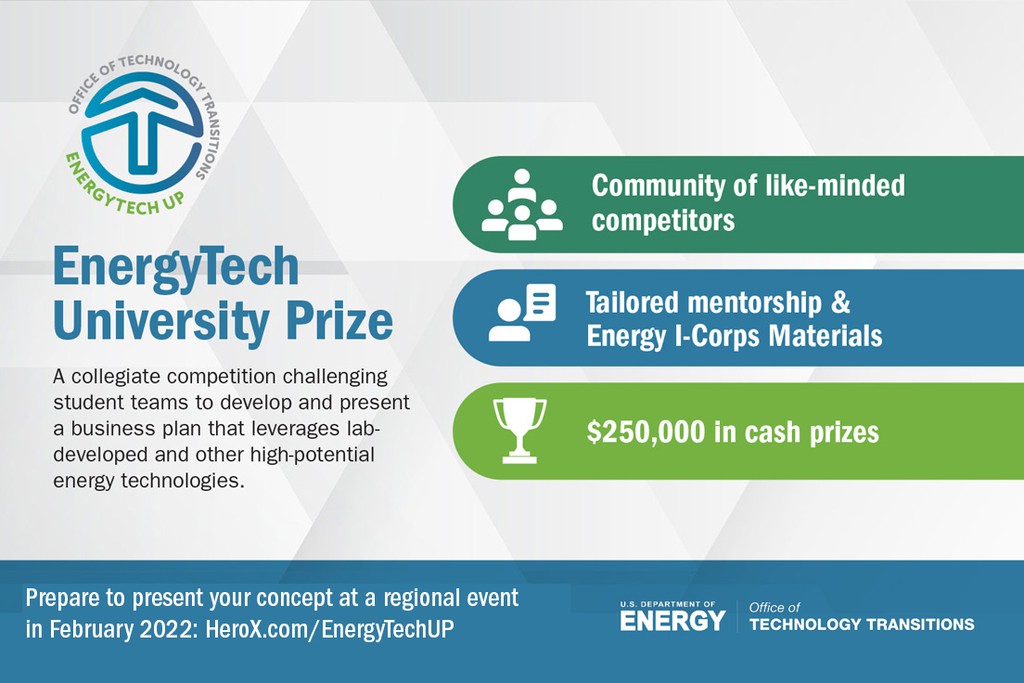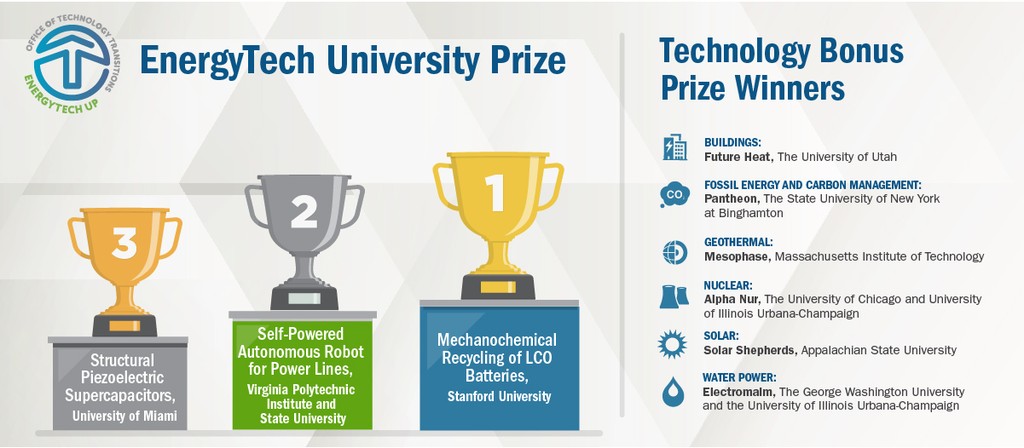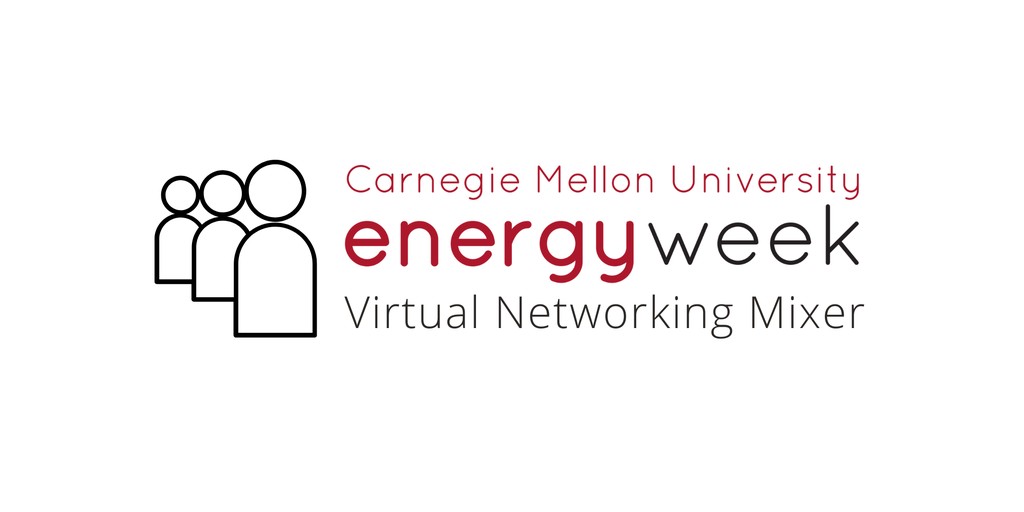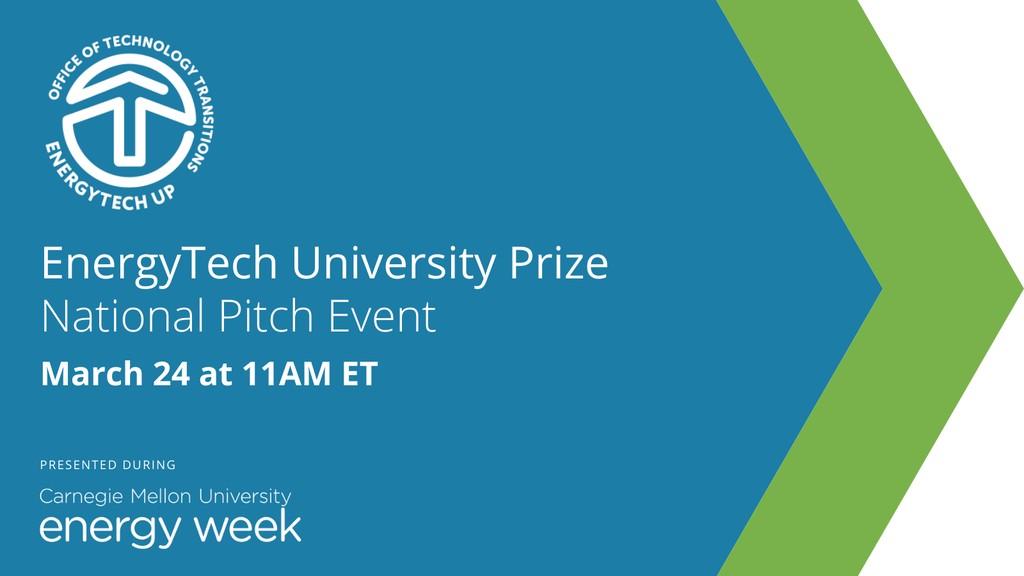Northeast Region
Cleantech Open Northeast
Cleantech Open runs the world’s largest clean technology accelerator program. Since 2005, Cleantech Open has worked with over 1,800 early stage cleantech innovators, helping them develop their business models, engage investors, and secure first customers. Each year, over 100 companies participate in one of the Cleantech Open U.S., Global Climate Innovation, or Global Ideas programs. Once a year, the best innovators from across these programs come together in celebration of their progress and impact in creating an inclusive green global economy.
New York Tri-State Region
NYSERDA
Clean energy can power New York while protecting the environment. The New York State Energy Research and Development Authority, known as NYSERDA, promotes energy efficiency and the use of renewable energy sources. These efforts are key to developing a less polluting and more reliable and affordable energy system for all New Yorkers. Collectively, NYSERDA’s efforts aim to reduce greenhouse gas emissions, accelerate economic growth, and reduce customer energy bills.
NYSERDA works with stakeholders throughout New York including residents, business owners, developers, community leaders, local government officials, university researchers, utility representatives, investors, and entrepreneurs. NYSERDA partners with them to develop, invest, and foster the conditions that:
- Attract the private sector capital investment needed to expand New York’s clean energy economy;
- Overcome barriers to using clean energy at a large-scale in New York;
- Enable New York’s communities and residents to benefit from energy efficiency and renewable energy.
Governed by a 13-member Board, NYSERDA has provided objective information and analysis, technical expertise, and support in New York State since 1975.
Syracuse Center of Excellence for Environmental and Energy Systems
Led by Syracuse University, SyracuseCoE is a key asset in Central New York’s innovation and entrepreneurial ecosystem. The center is a hub for innovative research and product development to improve indoor environmental quality, energy efficiency in buildings, clean and renewable energy, and water resources. One of 13 NYSTAR funded Centers of Excellence, SyracuseCoE strategically brings industry partners together with researchers and students in a thriving culture of collaboration and innovation, ultimately creating new businesses and jobs, strengthening regional and state economies.
SyracuseCoE supports growth and innovation through companies and researchers. Since 2002, more than 200 firms and institutions have been engaged in SyracuseCoE collaborative projects, in addition to more than 75 faculty in Central New York. Through June 2019, SyracuseCoE partners have reported more than 1,500 jobs that have been created or retained based directly on engagements with SyracuseCoE. Collaborating firms and institutions reported 57 patents related to SyracuseCoE projects, $53,880,448 in research funding leveraged, more than $8.7 million in capital investments, and creation of 13 new start-up firms.
Southeast Region
Florida High Tech Corridor
An economic development initiative of three research universities – the University of Central Florida, the University of South Florida and the University of Florida – the Florida High Tech Corridor aligns opportunities and resources in academia, industry and economic development to unleash the exponential potential of a 23-county region. Through matching research grants, a formal industry clustering initiative, a structured support network for women seeking SBIR funds and more, The Corridor converges and catalyzes the capacity of high tech, innovation and bright minds across the region to advance the lives of people in the communities it serves and generate a global ripple effect.
Carolinas Region
Research Triangle Cleantech Cluster (RTCC)
The Research Triangle Cleantech Cluster (RTCC) accelerates growth and leadership of the cleantech economy, leveraging the unique concentration of industry, academic, and government leaders in the Research Triangle to create benefits through innovation, deployment, and talent in the region, North Carolina, and beyond.
RTCC is a membership-based nonprofit organization that serves as a connector within the cleantech sector, facilitating meaningful relationships between organizations, among individuals, and between our members and opportunities to accelerate innovation and deployment. They facilitate business development and collaboration, innovation, and education and workforce development opportunities focused on clean energy systems, smart utility technologies, and clean transportation.
Northern Plains Region
Grid Catalyst
Grid Catalyst was launched in 2021 to build a platform for clean energy entrepreneurs, startups, early-stage innovators, and the partners who can help them implement solutions to cold climate challenges. Their platform addresses the gaps and inequities to enable the most promising clean energy innovation, and innovators, to enter the market. The program is hosted by Clean Energy Economy Minnesota, a 501(c)(3) nonprofit.
The accelerator is unique among other U.S. programs because of its focus on late-stage startups that need demonstration to enable a commercialization pathway, their interest in addressing cold-climate challenges for energy technologies, and their matchmaking approach that pairs their startups with members of the Innovators Network to demonstrate technologies in real-world applications. By doing this, they address the commercialization valley-of-death that inhibits many businesses from reaching their market potential.
Mid-Atlantic Region
Carnegie Mellon University Wilton E. Scott Institute for Energy Innovation
The Wilton E. Scott Institute for Energy Innovation address the world’s most pressing energy challenges by enabling collaborative research, strategic partnerships, policy outreach, entrepreneurship, and education.
They support impactful work that strives to optimize resources and reduce environmental consequences associated with energy production and use. They understand that energy and social equity issues are deeply interconnected, and society can benefit with improved energy access.
They seek to encourage the development of breakthrough technologies that will accelerate the transition to a sustainable, low-carbon energy future. CMU is uniquely suited for these challenges with their many research centers and longstanding faculty expertise in technology, policy, integrated systems, and behavioral science.
Appalachia and South Region
University of Arkansas Technology Ventures
Technology Ventures at the University of Arkansas commercializes cutting-edge research to support a lasting knowledge-based economy to benefit Arkansas and the world. They serve the university’s faculty, staff, and students, as well as external inventors and entrepreneurs. Their goal is to disseminate knowledge, technology, and products to generate a return on investment that is reinvested into our innovators and future research support. In this way, they also serve the public as it is their responsibility to enable public utilization of products derived from university research. They manage a large portfolio of intellectual property including patents that are available for licensing, and they are the foundation for startup companies that utilize university intellectual property.
University of Kentucky Center for Applied Energy Research
Since 1977, the University of Kentucky Center for Applied Energy Research (CAER) has served as one of the nation’s premier energy research and development institutes, collaborating with companies and government agencies to help maximize Kentucky’s – and the nation’s – energy resources.
CAER scientists and researchers are focused on solving problems in the following technological areas: carbon dioxide capture technologies, advanced carbon fiber and carbon materials; new cementitious materials; renewable biofuels, biodiesels, and bioplastics; novel carbon-based electronics and energy storage materials; electronics recycling; and carbon ore, rare earth and critical minerals. The Center is committed to expanding Kentucky’s energy workforce by offering experiential, hands-on educational opportunities starting in Kentucky’s K-12 schools while also offering numerous undergraduate and graduate research opportunities.
Texas Region
Greentown Labs
As the largest climate-tech startup incubator in North America, Greentown Labs brings together startups, corporates, investors, policymakers, and many others with a focus on scaling climate solutions. Driven by the mission of providing startups the resources, knowledge, connections, and equipment they need to thrive, Greentown Labs offers lab space, shared office space, a machine shop, an electronics lab, software and business resources, and a large network of corporate customers, investors, and more. With its headquarters in Somerville, MA, and a recently opened incubator in Houston, Greentown Labs is home to more than 180 startups and has supported more than 400 startups since the incubator’s founding in 2011. These startups have collectively created more than 7,800 direct jobs and have raised more than $1.5 billion in funding.
Great Lakes Region
Evergreen Climate Innovations
Evergreen Climate Innovations, formerly Clean Energy Trust, provides catalytic capital and support to entrepreneurs and startups that bring impactful climate technologies to market. The nonprofit pioneered its 501vc® Investment Fund to align philanthropic and corporate contributions to deliver environmental, economic, and social impact. Evergreen advances and expands access to innovation across the Greater Midwest and cultivates an ecosystem of investors, donors, and collaborators. For over a decade, Evergreen Climate Innovations has invested in startups that have raised $41 for every $1 invested.
California Region
UC San Diego Office of Innovation and Commercialization
UC San Diego is globally recognized as an innovation leader driving social and economic prosperity. Together with their campus partners, the Office of Innovation and Commercialization aligns resources to encourage and support an innovative community composed of students, faculty, staff, alumni, and community advocates. Their mission is to accelerate the commercialization of UC San Diego innovations and contribute to a sustainable society by empowering a diverse entrepreneurial culture on campus and strengthening a dynamic innovation ecosystem.
West Region
Elemental Excelerator
In 2009, Elemental Excelerator launched a new nonprofit model for funding climate tech deployment. Breaking down barriers to innovation alongside entrepreneurs provides us unique insight into the policy, market, and technology innovation needed to build systems to uplift people and communities around the world. Elemental Excelerator has invested in over 100 growth-stage companies and celebrated more than a dozen exits, funded more than 70 technology projects, and built a platform for scaling equitable, market-driven solutions to climate change.
Exponential Impact
Exponential Impact’s mission is simple: Give early-stage entrepreneurs focused on emerging technologies the best start humanly possible. They develop founders and startups by equipping them with resources and expertise, then strengthen their connections to create rich environments of innovation and collaboration.
Their core values, called The Six Peaks Model, enrich all aspects of XI to deliver a holistic approach to supporting participants as leaders and as startup founders. These Six Peaks include Story and Innovation, Awareness, Health and Wellness, Leadership and Culture, Operational Excellence, and Mentoring.
Launch Alaska
Founded in 2016 and based in Anchorage, AK, Launch Alaska is a nonprofit deployment accelerator, focused on helping climate tech companies find customers, deploy projects, get revenue, and make an impact in Alaska.
They’re on a mission to accelerate the resource revolution—to urgently decarbonize our world by getting solutions to energy, transportation, and industry challenges into use in Alaska.
Portland State University Center for Entrepreneurship
Since its inception in 2012, the PSU Center for Entrepreneurship was created to work with any of the PSU Schools and Colleges providing a path for students and faculty to explore Oregon startup ecosystem.
We work closely with the PSU Business Accelerator and the office of Intellectual Property under the umbrella of Propel PSU allowing us to provide a robust entrepreneurial experience to PSU students at any time during their academic journey. The Center for Entrepreneurship has developed robust co-curricular offerings that include, The PSU Cleantech Challenge, Kickstart Weekend, InventOR, Lab2Market, and The Cube - PSU Idea Lab for Innovation and Entrepreneurship for any PSU Student.
University of Arizona Center for Innovation
The University of Arizona Center for Innovation (UACI) is a startup incubator network with locations across the Southern Arizona region. The UACI offers leaders of science and technology startups the expertise, connections to the University of Arizona, incubation programs and office and lab space needed to turn ideas and inventions into strong, scalable, and sustainable businesses that ultimately provide high-paying jobs and fuel Southern Arizona’s economy. As Arizona’s leading incubation organization, with nearly two decades of successful outcomes, UACI is a critical component of Arizona’s innovation ecosystem. This is done through providing access to people, programming and places that help entrepreneurs take their companies from idea to market.
Startups go through a structured program that takes them through a continuum of education provided by mentors, advisors and community collaborators. The University of Arizona Center for Innovation also provides access to service providers, industry cluster groups, interns, and connections to potential customers and strategic partners. Entrepreneurs utilize various physical spaces that include offices, wet and dry labs, meeting rooms, a prototyping center, collaboration areas, and the infrastructure to support these spaces.
University of Washington Arthur W. Buerk Center for Entrepreneurship
Founded in 1991, the Buerk Center offers an exceptional curriculum, real-world experiences, and connections to the Seattle entrepreneurial community to inspire students from all majors and disciplines across campus to pursue their entrepreneurial passions.
While their core curriculum focuses on entrepreneurial strategy, finance, and marketing, their electives run the gamut from Venture Investing to Software Entrepreneurship, from Grand Challenges for Entrepreneurs to Biomedical Entrepreneurship. The Buerk Center focuses on the strengths of the University of Washington and Seattle, and creates new courses that capitalize on those strengths.
Seattle and the Cascadia Corridor is a magnet for entrepreneurs. They have an entrepreneurial culture, research powerhouses, support for early-stage entrepreneurs, sources of capital, a talented pool of workers, and a strong media to tell startup stories. The Buerk Center celebrates this ecosystem annually with a series of innovation and startup competitions open to students at accredited colleges and universities across the Cascadia Corridor – Washington, Oregon, Idaho, and British Columbia.

